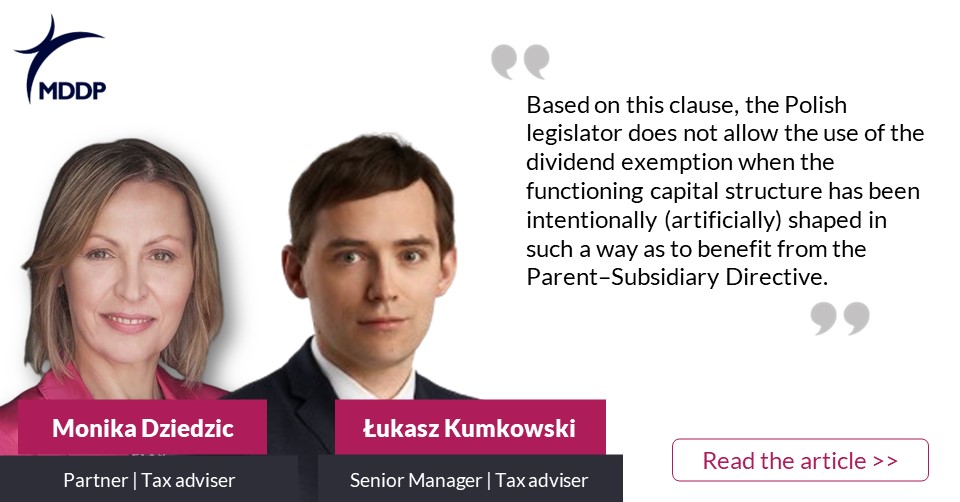Applying the parent–subsidiary exemption in Poland is becoming more difficult
Monika Dziedzic and Łukasz Kumkowski consider the dividend taxation exemption for payments made by Polish companies and explain the fulfilment of the beneficial ownership requirement by foreign holding companies
To apply a parent–subsidiary exemption, Polish tax authorities require that recipients of dividend payments (paid by Polish companies) remain their beneficial owners and are effectively taxed in the country of their tax residency.
Polish tax authorities – followed by (in some judgments) administrative courts (e.g., the Supreme Administrative Court in a judgment dated January 31 2023, ref. No. II FSK 1588/20) – are presently of the opinion that the application of the parent–subsidiary exemption depends on the recipient of the payment being a beneficial owner. In light of Article 4a, point 29 of the Polish Corporate Income Tax Act (the CIT Act), a beneficial owner is an entity that:
- Receives a payment for its own benefit (including deciding on its intended use and bearing the economic risk associated with the loss of this receivable or part of it);
- Is not an intermediary obliged to transfer all or part of the received payment to another entity; and
- Conducts a genuine business activity (if the receivable is obtained in connection with the conducted business activity).
The requirement of being the beneficial owner, despite the lack of its explicit expression in the CIT Act provisions implementing the parent–subsidiary exemption, is raised (among others) in relation to foreign holding companies, especially when a holding company does not conduct significant operational activities; among others, if it does not conclude contracts with clients, or does not hold personnel and assets required to perform its business activities.
The Polish tax authorities also pay special attention to the factual circumstances related to the operation of a foreign holding company, such as a low amount of paid-in initial capital, low costs of running an office, lack of costs related to performing management functions, or incurring only the costs of advisory and audit services.
***

